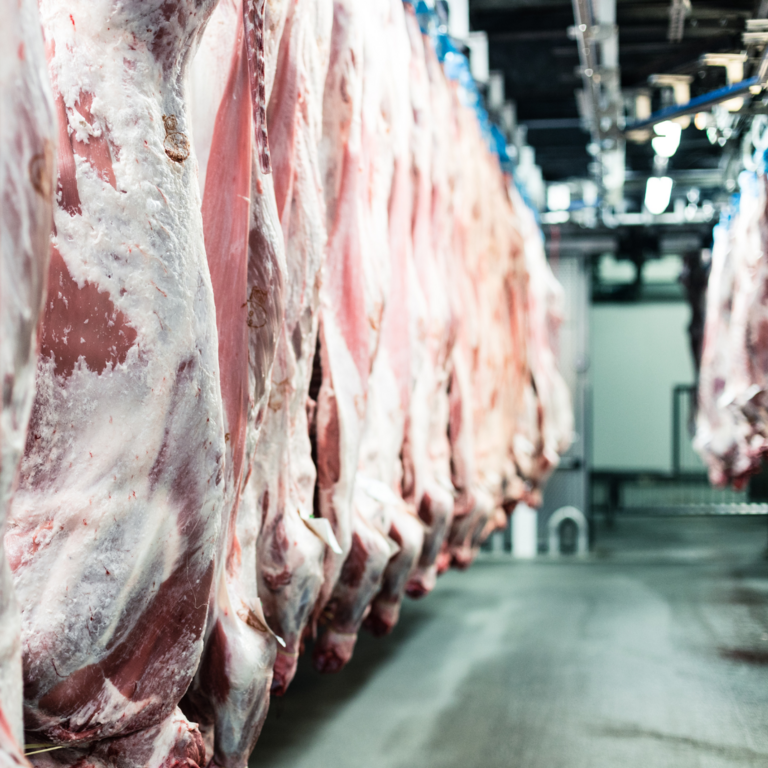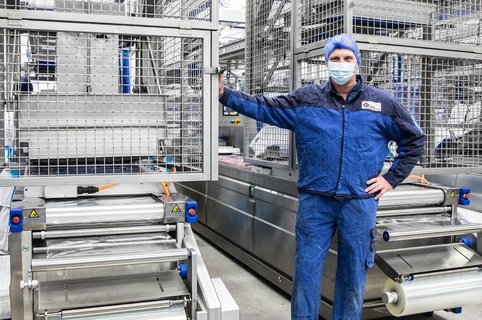Quintus is no stranger to Ekro. After a part-time job and subsequent graduation assignment at the company, he started working as an adviser at KWA. One of his clients happened to be his former internship at Ekro! Looking back, Quintus says: "It was a great start for me to advise Ekro in making its processes more sustainable. I was completely familiar with the company after a part-time job and internship." "From the VanDrie Group, all Dutch companies took part in an MJA, which passed into the EED trajectory," Cor adds. "This was an elaboration of the Energy Efficiency Directive with the aim of reducing energy consumption by 20% in 2020 compared to 2012. Thanks to his knowledge of our company, Quintus was able to provide very specific advice on where we should work more efficiently with energy."
The MJA trajectory might have finished at the end of 2020, but Cor and Quintus didn’t let the grass grow under their feet. "Together with KWA, we mapped out various situations in which we had to implement optimisations,” says Cor. "This resulted in a long-term vision. We sense the urgency to become more sustainable. This is necessary if we are to continue to produce veal products in a socially sustainable way.” "Implementing the energy-saving measures is a nice step," says Quintus. "But to take larger steps, constructive investment really is needed to achieve an impactful result."
We sense the urgency to become more sustainable. this is necessary if we are to continue to produce veal products in a socially sustainable way - Cor Schel
Cor and Quintus point out that technically difficult cases are not shunned, such as the cooling units where carcasses are cooled after slaughter. "Carcasses need to be cooled and most of this energy is expelled to the outside air," Quintus explains. "With the help of a heat pump, among other things, this residual heat can be used to heat the cleaning water." This method of heat recovery should be operational within a few years. "By using this residual heat, we’re moving towards further closing the cycle," says Cor.
There are still plenty of challenges to becoming more sustainable. "It’s of utmost importance that our business processes can continue safely," Cor emphasises. "Not only is sustainability an important principle for the company, but food safety must also not be compromised. Ekro uses a lot of hot water when cleaning knives and equipment. This is done in many stages after each operation on a carcass to eliminate any germs and prevent them from spreading. An absolute requirement to produce food safely.” Cor continues: “In this type of operation, Ekro simply cannot afford to have temperature fluctuations. That’s why we have to think very carefully about how to eliminate any possible risk that could affect food safety."
Quintus agrees. "Cases like this make the issues at companies like Ekro unique," he adds. "But above all, it’s just as interesting to look for a solution together." Quintus noticed that in the past, the speed of projects did not always meet the targets. But he sees a clear turnaround in this by having a vision for the longer term.
"That's right," Cor confirms. "In recent years, we've achieved some good results. Sometimes, unfortunately, things don't go as fast as we would like. But the right way is often the slow way. Fortunately, we don’t have to face the process of becoming more sustainable on our own. A couple of fresh, but above all, knowledgeable eyes from outside naturally exerts positive pressure on Ekro to keep improving."

![[Translate to English:] [Translate to English:]](/fileadmin/_processed_/b/f/csm_Overkapping_Blog__1280x_550_38d59530c0.jpg)
